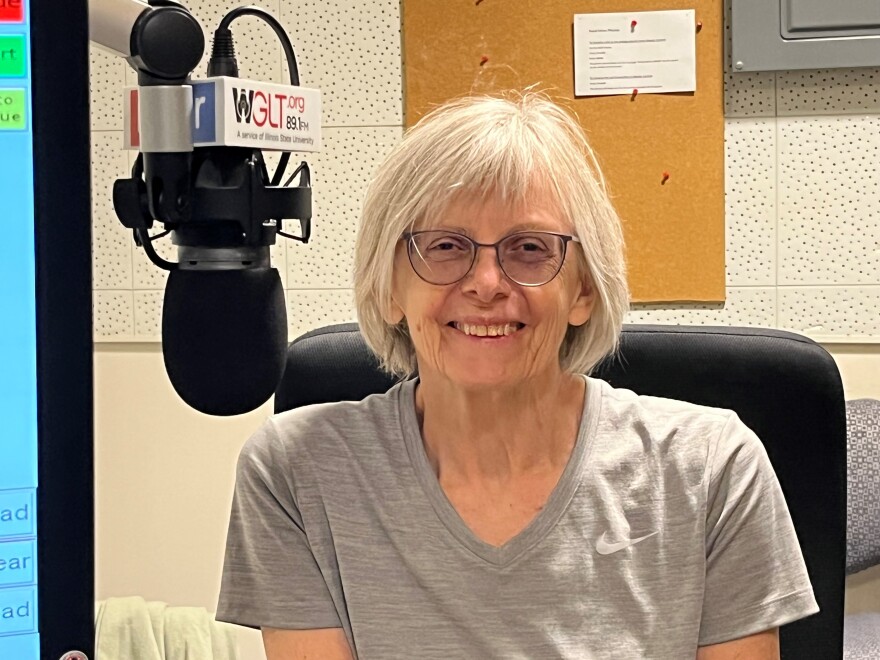As of October, 4.5 million Ukrainians had registered as war refugees in various European Union countries for temporary protection. They are disproportionately women and children.
As winter arrives, challenges remain for nations hosting them, particularly Poland, which has the most refugees from Ukraine of any country. Moldova, Hungary, and Romania also are common places for people from Ukraine to flee the Russian invasion.
The last great wave of refugees into Europe came seven years ago and provides some examples of how to manage such a crisis. A woman who now lives in Normal part of the year ran a study abroad program in Heidelberg, Germany at that time and got students involved teaching German-as-a-second language to the refugees.
Hanne Heckmann ended up doing a lot more than that.

“We had no clue what to expect, absolutely no clue whatsoever,” said Heckmann, who said they helped refugees with paperwork, shelter, employment, and even entry to the university.
Heckmann said the first group came through Turkey and into Munich. The state of Baden-Wurtemburg placed the registration center for refugees in Heidelberg.
"We had the space there because U.S. Army Headquarters was in Heidelberg for many years, until roughly 2014. So, we had a lot of facilities that were empty. Two American villages were practically empty. So one of the villages became a registration center. We had thousands of refugees in that center," said Heckmann.
That village was apart from the normal hustle and bustle of downtown. That was good because things could happen there in an orderly way without disrupting the rest of the town. The downside was that it was somewhat remote and inconvenient for the refugees as they integrated into German society.
“But in a way it had to be that way," said Heckmann. "They had to be checked medically. They had to be registered. They had to be fingerprinted, photographed, you know, the usual routine. They also had the opportunity to talk to therapists, to psychologists; there was a women’s center there, daycare, etc. The city reacted very quickly to set up this center with federal money.”
The retired academic said dealing with refugees in an effective way requires both a government commitment and community involvement. She said government cannot smooth the way to help everyone as individuals, but communities don't have the resources to do it without government backing.
"There was an enormous amount of volunteering, just like our students, our group. And the social services of the churches were very involved right from the start. And the government was in charge. Essentially, they used money to hire social workers, tons of translators and medical staff," said Heckmann. “It was chaotic in many ways. And yet it somehow worked.”
Later waves of refugees came from Iran, Iraq, then Syria, and finally Africa.
One woman from Iran even stayed with Heckmann for several months, and they have remained friends, adding the woman has since made a home in Germany.
“She's now employed in a nursing home. She works in the kitchen, and she takes people in the home to doctors' offices or for a walk. She's involved in everyday stuff there. And her German has gotten much better," said Heckmann.
Ukrainian refugees are different than the multiple waves of multi-ethnic refugees that streamed into Europe over a period of several years. The ones now did not necessarily leave their country for political reasons and most hope eventually to go back to Ukraine. Heckmann said she does not believe that complicates integration into host country societies.
“I think they want to be part of it as much as they can for the time being,” said Heckmann. “A lot of them want to reside, for the time being, in the eastern portion of Germany around Berlin, because they hope to return quicker that way.”
They also have a different status. European Union nations have agreed to automatically accept Ukrainian refugees as residents, allow them to work, and to enter schools and universities for a period of years. That process was far more convoluted when Heckmann was involved with relief efforts.
“Housing is a problem because the communities are running out of housing in Heidelberg. We have 90 Ukrainian refugees arriving every week in the community, not just at the registration center. There, it's many more per week. That's a lot and you have to find housing for them,” she said.
And winter is coming on. Yet Heckmann said she is optimistic.
“I think it all will fall into place. I don't think anyone will have to sleep in a gymnasium or a shelter or anything like that. The church is out there. The communities are doing everything they can. Private citizens are taking on people. And of course, a lot of Ukrainians have Ukrainian family or friends who, for whatever reason, came to Germany years ago and have settled so there is that,” she said.
Heckmann said she does not think U.S. political leaders are as committed to becoming as involved in dealing with immigrants on the southern border as European politicians are to absorbing successive wave of refugees.


